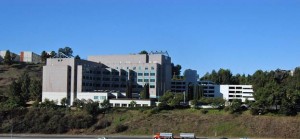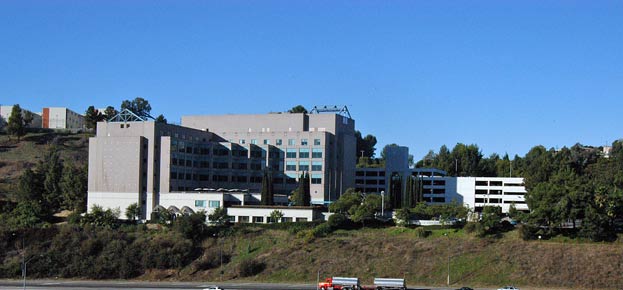
Edmund D. Edelman Children's Court Building, Los Angeles
This March, Los Angeles’ dependency courts -- where rulings are made whether children remain in foster homes or return to their parents’ or previous legal guardians’ custody -- opened to the media for the first time since the 1960s.
After an attempt to open the state’s children’s courts failed in a state Assembly committee in 2010, Supervising Judge Michael Nash ordered that the dependency courts of Los Angeles County be open to the media last month.
A number of organizations, including the Children’s Law Center of Los Angeles (CLCA) and the Los Angeles Dependency Lawyers (LADL) have publicly criticized the decision.
Supervising CLCLA Executive Director Leslie Starr Heimov said that the decision to allow press in courtrooms places an additional burden on the county’s publicly appointed attorneys, who sometimes work as many as 150 cases simultaneously.
“What we’re asking for is an orderly procedure where we get more than three seconds to make our case,” Heimov told the Pasadena-Star News. She also believed that the presence of reporters may unsettle children and possibly interfere with hearings.
“Sometimes we can’t predict how they are going to react to a reporter,” she told the paper. “They don’t always have the capacity to deal with change.”
Marlene Furth, a LADL supervising attorney, agreed.
“There was just this level of tension,” she told the paper. “Everyone is like, ‘The press is watching. The press is watching.”
Furth also said that media presence in dependency courts may also limit the time attorneys have with their clients. Additionally, she said the presence of reporters may create an atmosphere in which individuals would be unwilling to address personal matters.
“Ideally, our court is one of rehabilitation,” she said. “We need our clients to feel comfortable talking about drug use and the other issues of their cases.”
The current courtroom climate, Furth said, is one in which “everyone is spooked.”
Matthew Fraidin, an associate professor at the University of the District of Columbia David A. Clarke School of Law, supports the decision to open the county’s dependency courts.
"The system actors don't have the benefit of oversight," he told the Pasadena paper. “Of all of the systems, this one should have more scrutiny."
Fraidin said that if more people were aware of the “day-to-day small failures” that harm children within foster care, a greater reaction from the general public would be likely.
"One of the things I said was I can't believe I didn't know all this stuff is going on,” Fraidin told The Star-News. “These secrecy laws prevent the people who know the stories from going out and talking about what they’ve seen.”
Annually, the Los Angeles Dependency Court hears an estimated 25,000 cases. According to the County Department of Children and Family Services, the average annual state budget for children’s attorneys is around $680 per case.
Photo: Cal State Los Angeles
